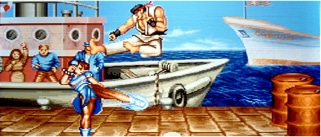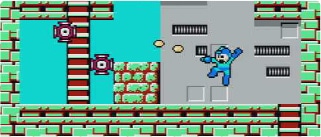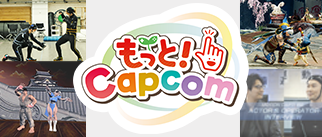- Value Creation Story (PDF)
- CEO
Commitment - Growth
Strategies - Financial Strategy
- Latest
Creative Report - Corporate Oversight
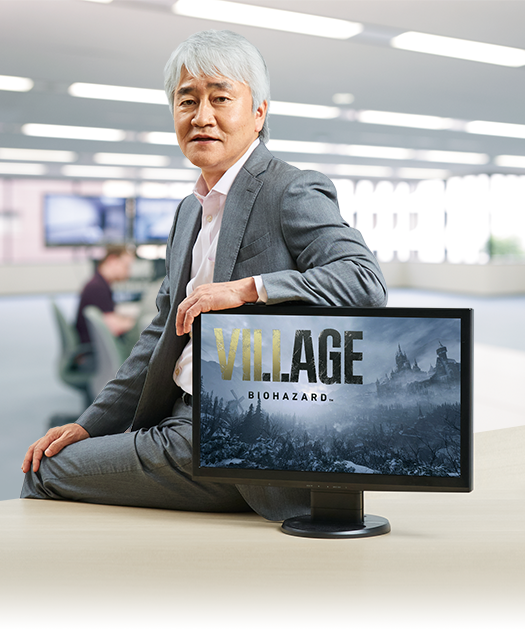
Development policy and foundation building for creating globally acclaimed content.
Yoichi Egawa
Director and Executive Corporate Officer
In charge of Development and Pachinko & Pachislo Business Divisions of the Company
Achieving sustainable growth by balancing world-class quality and cost-consciousness
The reality of this industry is that unless a game is high-quality and appeals to people globally, it will not sell. This concept has been deeply ingrained in us as game developers since our founding more than 35 years ago. From the time I became responsible for development, Capcom has achieved significant growth with the global branding of Monster Hunter, the establishment of a long-term sales model for major titles, and the increased percentage of digital sales, but all of this was only possible because Capcom is recongnized as the producer of some of the highest quality games in the world.
Even now, we refuse to allow ourselves to be content with our achievements and continue to work towards establishing a system for greater growth throughout the entire development organization.
In addition, I am focusing on strengthening awareness of the numbers in the development divisions. I myself come from a background in development, and creators have a tendency to want to pursue all the possibilities of creativity. Of course, this pride in craftsmanship is one our company’s greatest strengths and is the source of numerous hit titles that Capcom has produced. However, in order to achieve the annual 10% profit growth sought by management, we cannot run the company solely on the self-satisfaction of our creators. As someone responsible for an enormous amount of investment, I do not evaluate the results from our divisions in terms of profit and loss alone; rather, by promoting productivity-conscious game development, I am furthering the soundness of the company. As a result of these efforts, an awareness of the management goals of balancing title profits and losses with the expansion of the pipeline from a medium-term perspective has now begun to permeate among those at the divisional manager level of our game development.
For the immediate future, in addition to our unwavering mission to cultivate and create IPs, we will focus our efforts on building and maintaining a network environment that supports cross-play in order to address the diversification of cloud platforms and promote strengthening continuously updated online content. In addition, I am also promoting research into leading-edge technology as we look five or ten years into the future.
With the imminent innovations in technology, the growth potential of digital entertainment is incalculable. As such, it is my intent to continue managing and fostering the development organization with the attitude of never running away and never giving up in the face of a challenge.
Building a development environment that takes full advantage of our unique characteristics with our proprietary development engine
One of Capcom’s greatest game development strengths is that we have a proprietary game development engine, the RE ENGINE.
The RE ENGINE not only makes it possible to develop high-quality games, but also based on feedback from the titles we have developed thus far, it is constantly evolving to fit our unique needs, thoroughly demonstrating the strength of our in-house engine.
Capcom is also actively investing in our research and development buildings and equipment, leading the world’s standards in terms of cutting-edge facilities. When creators and engineers team up in an environment such as this, they can achieve world-beating quality that is second to none.
[Online Integrated Report 2017] Outfitting our Development Environment
Actively using younger employees on important projects, Capcom ensures our craftsmanship will carry on to the next generation
As we consolidate our in-house technology and know-how and pass on the development DNA of popular IP that have been with us since our founding to the next generation, we are also evolving by incorporating the sensibilities of the younger generation. This concept is what has led Capcom to hire more than 100 newly graduated developers annually since 2011 and set an initial goal of achieving a 2,500-person development workforce. It takes several years of development experience until a new employee is able to stand on their own two feet as a developer, but with the improvement in game console performance, the time required to develop a single game has grown. As a result, even younger employees are now being appointed to major title and middleware (for example our game engines) development teams, which stand at the core of game development. This stimulates younger employees’ growth as they gain rewarding experience and know-how working hands-on at the frontier of the industry. We have also implemented a system that supports and fosters highly skilled younger employees so that they may be selected as one of the core members leading the overall development of their next title.
With a state of emergency declared in Japan from April to May 2020, Capcom’s development divison employees primarily worked from home.
Developing games requires handling large volumes of data, which limits the amount of progress that can be made working from home. Once the state of emergency was lifted, considerations had to be made for seating arrangments that followed social distancing guidelines, which meant that it was impossible for all employees to be present at once. However, by reviewing personnel assignments and staggering working hours, we were able to achieve both efficient operations and produce results as we aim to reduce the risk of delays in development.
This experience has led us to examine more productive ways of working from home, and if the pandemic should continue, we expect that we will be able to mitigate a decrease in productivity more successfully.
Home video game software sales trends (units in ten thousands)
| 2018 | 2019 | 2020 | 2021 (plan) |
|---|---|---|---|
| Total unit sales | |||
| 2,440 | 2,530 | 2,550 | 2,800 |
| Main title sales | |||
790
160
100 |
450
420
210 |
520
320
240 |
|
(Years ended March 31)
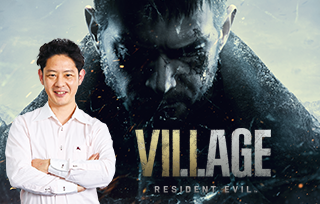
Fight through fear and desperation!
Resident Evil Village is a survival horror game like never seen before.



